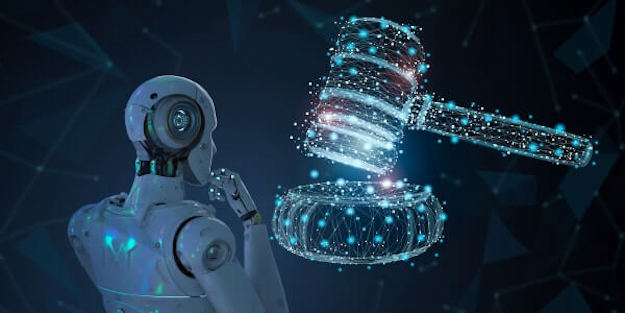AI is set to have a much more profound impact on the legal industry in the coming years. With the adoption of artificial intelligence (AI) in legal practice, more lawyers will remain focused on transactional work while also efficiently processing legal documents. This will reduce the demand for human lawyers while also increasing the quality of legal services. Companies that need to check the validity of legal documents or schedule conference calls with lawyers will become more efficient with AI adoption. Below you will find the factors how AI is changing the legal industry.
1. AI in Legal HR Management
Another effect of AI in the legal sector will be the transformation of HR management. With the implementation of AI, HR leaders will have greater insight into their teams’ work quality. It will be able to identify areas of weakness and offer useful feedback on the quality of work being produced. It will help HR leaders to identify areas of strength and make necessary adjustments to retain quality employees. AI also has the potential to improve the way employees interact with HR leaders. It can improve the quality of interactions between employees and HR leaders to foster greater trust and prevent misunderstandings.
2. The Lawyer as a Brain-Computer Interface
Legal firms are now embracing the idea of brain-computer interfaces (BCI) to help their lawyers work more efficiently. Brain-computer interfaces are electronic devices that allow people to communicate with a computer by using an electrical brain signal. These interfaces are usually worn on the forehead and can recognize various speech and writing patterns of people and computers. They are becoming more widespread in law.
3. AI in Legal Practice: From Transactional to Document-Based
In the past, legal AI mostly focused on understanding and responding to the demands of legal clients. Now, it is also being used to process legal documents. This is possible thanks to advancements in machine learning that have made it possible to automatically conduct legal research, find precedent and draft legal documents in real-time. Legal AI can also be used to create a virtual representation of the law that can be used in courts, such as in dispute resolution, or corporate operations, such as mergers and acquisitions.
4. AI in Legal Research: From Text to Summaries
Legal AI has seen great progress in the past few years, thanks to the advent of natural language processing and big data technologies. Now, researchers are extending AI to understand the context of legal documents, such as the author’s tone, body language, and stylistic variations, allowing for a much higher understanding. Legal case search has now been made easier with the help of AI technology.
Don’t Miss-
8 Legal Tips for Startups that Every Entrepreneur Must Know
5. AI in Legal Marketing: From Outbound to In-Demand
Legal marketing is a rapidly growing field, with many organizations now using AI to power their in-house counsel. AI-based legal marketing can personalize and recommend legal services to potential clients based on their needs and preferences. Legal AI can help lawyers and law firms reach new clients and retain existing ones. It can decrease the demand for human resources while still increasing the quality of service.
6. AI in Regulation: Towards a More Human-Friendly System
Machine learning and AI have also allowed legal scientists to tackle the complexity of legal problems and issues that humans often face. It was made possible by developing statistical algorithms that can perform human-like reasoning and make decisions based on evidence and facts. Legal AI is also finding use in regulatory practice, where it can support organizations that conduct background checks on potential hires, such as the United States Department of Labor (DOL).
The legal industry is constantly looking to improve its customer service and product quality. This has led to an arms race of algorithmic automation, which has also changed the nature of legal work itself. The ability of algorithms to detect and determine the validity of legal documents has already been demonstrated in practice. Machine Learning and Artificial Intelligence are now being implemented in the legal sector. They transform how we practice law and deliver justice and how the courts interpret laws and determine criminal and civil cases. All this has created a new paradigm in the legal industry, with lawyers becoming more focused on transactional work while also being able to process legal documents efficiently.

